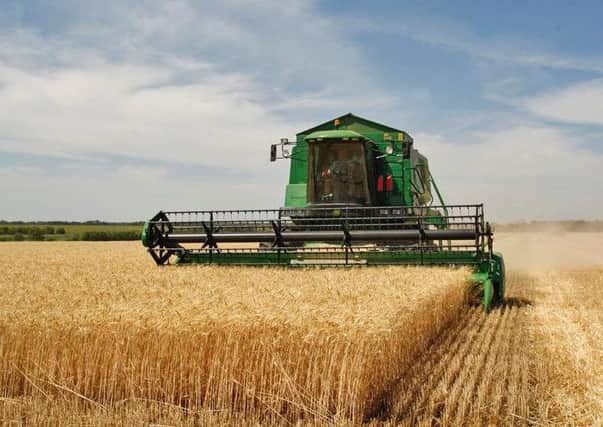Farmers need to make the case for keeping subsidies
This article contains affiliate links. We may earn a small commission on items purchased through this article, but that does not affect our editorial judgement.


As the answer to all four is “Not a lot”, perhaps the programme works on the premise that will always be the answer, in the same way that without reading further you can confidently answer “No” to any newspaper headline that ends with a question mark.
So, in advance of Radio 4 asking the question, it might be worth farmers coming up with a convincing defence of their business now in the aftermath of the Brexit vote.
Advertisement
Hide AdAdvertisement
Hide AdThe question might even be posed as “What is the point of subsidising farming?” because that is what the case for and against would centre on. More than £3 billion a year in subsidies to British farmers is still a lot even in these days of trillions, zillions and possibly squillions and a cash-strapped public with the National Health Service, education and transport as priorities might object to paying it.
But, according to Westminster, that present level of subsidy for farmers will continue. European Union funding, indirectly paid by the British taxpayer, will come directly from the British taxpayer.
The small print of that and the conditions to apply will be interesting when we get them. A surprising, to me, percentage of British farmers voted turkeys-for-Christmas style to leave the EU because of the bureaucracy involved in subsidy payments and what they feel are restrictions on how they can farm.
Late subsidy payments and bungled administration, probably also had something to do with it. And many specialist branches of farming, such as potatoes, vegetable growing, egg and chicken production and dairying don’t rely on subsidies.
Perhaps they believe there are more opportunities outside the EU than inside – unlike beef and lamb production. Yet many beef and sheep farmers also voted to leave the EU. Without EU subsidy most of these farms would trade at a large loss – they must be seriously fed up with bureaucracy. I will be surprised if any purely British system is less bureaucratic.
The recent statement by Dame Helen Ghosh, director of the National Trust, can’t have calmed nerves. She said that farmers should be rewarded only for public benefit conservation. By implication, food production would be secondary.
Trying to dismiss her comments won’t work – she represents a large chunk of national interest. The National Trust has more than 4.5 million members, 247,000 hectares of land and an income of more than £520 million. It is a big player in the countryside. At about the same time as the Ghosh claim, figures were published indicating how much subsidy large-scale landowners collect. How can it be right, it was asked, that the biggest get more than £1m a year? Surely, the argument goes, the answer must be that when Britain runs its own subsidy system we have one that supports only the family farm. But how do we define a family farm when some of our biggest farming businesses are family-run? And they’re getting bigger.
An abrupt cut-off point, goes the theory, will leave every business above small-scale to fend for themselves. The average subsidy of almost £30,000 per British farm will disappear. Farming organisations such as the national farmers’ unions, with about 100,000 members in Britain – National Trust 4.5 million, RSPB one million, remember – had better prepare a good case.
Advertisement
Hide AdAdvertisement
Hide AdThey can argue that barely 60 per cent of what we eat is produced in Britain so food production is vital and the most efficient way is large-scale farms. A public used to the present price war among supermarkets might well say: “So? We don’t care where food comes from as long as it’s cheap.”
There is a case for British farming, but in the difficult years ahead farmers have to make it a good one.
